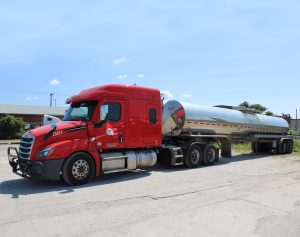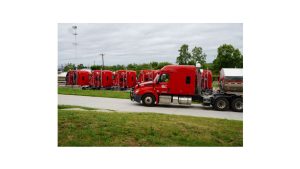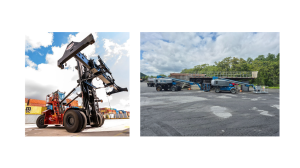Becoming an owner-operator in the trucking industry is a significant decision that offers both the promise of independence and the challenge of running your own business. Unlike company drivers, owner-operators own and operate their trucks, giving them control over their routes, schedules, and business operations. This level of autonomy comes with a unique set of responsibilities and rewards.
This blog will discuss how owner-operators work, detailing their daily responsibilities, the requirements to become one, the types of trucks and freight they handle, the expenses involved, and their potential earnings.
Owner Operator Overview
An owner operator is a self-employed driver who owns and operates their truck. They are responsible for managing all aspects of their business, from vehicle maintenance to securing contracts and managing finances. This autonomy allows them greater control over their work but also requires significant commitment and business acumen.
Responsibilities and Duties
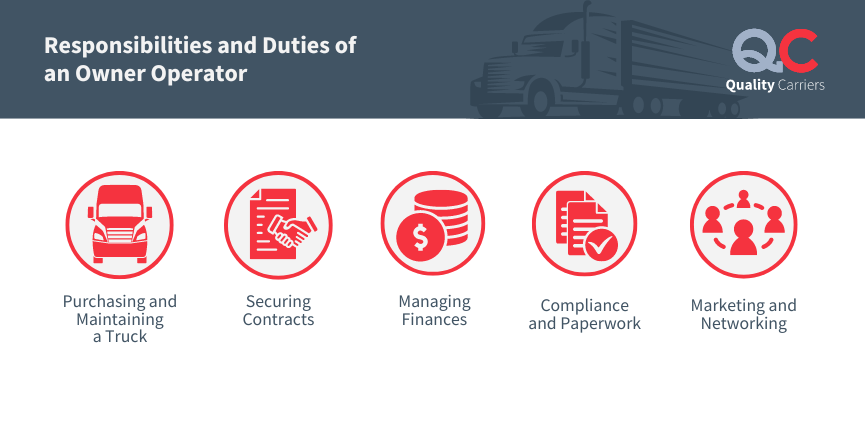
1. Purchasing and Maintaining a Truck
Owner-operators must purchase and maintain their trucks. This includes regular maintenance, repairs, and upgrades to ensure their trucks are in working condition and comply with all safety and environmental regulations.
2. Securing Contracts
Owner-operators are responsible for finding their clients and securing contracts. This can involve working directly with shippers, using load boards, or partnering with freight brokers. Building relationships in the industry and delivering reliable service can help secure consistent and profitable contracts.
3. Managing Finances
Running a successful owner-operator business involves financial management. This includes tracking income and expenses, budgeting for maintenance and repairs, and setting aside tax funds. Many owner-operators use accounting software or hire accountants to help manage their finances effectively.
4. Compliance and Paperwork
Owner-operators must comply with various regulations from the Department of Transportation (DOT) and the Federal Motor Carrier Safety Administration (FMCSA). This involves maintaining accurate records, keeping up with safety inspections, and ensuring their truck meets all legal requirements.
5. Marketing and Networking
To grow their business, owner-operators need to market their services and build a network of contacts in the industry. This can involve creating a professional website, using social media, attending industry events, and joining trucking associations.
Job Requirements
1.Commercial Driver’s License (CDL)
A valid CDL is essential for all truck drivers. Owner-operators must have a CDL with the appropriate endorsements for the type of freight they plan to haul.
2. Experience
While not always mandatory, having several years of experience as a company driver can be beneficial. It helps one understand the industry, build a network, and gain the skills necessary to run a successful business.
3. Financial Stability
The initial investment for purchasing a truck and other necessary equipment requires financial stability. Owner-operators need to secure funding, which may involve loans or savings.
4. Business Acumen
Running an owner-operator business requires knowledge of business operations, including financial management, marketing, and regulatory compliance.
Trucks
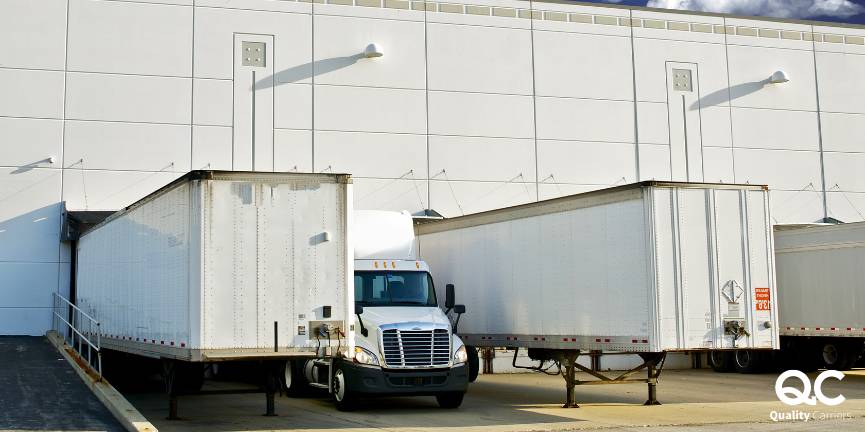
1. Purchasing a Truck
The journey of an owner-operator begins with the purchase of a truck. This significant investment requires careful consideration and thorough financial planning. Owner-operators can buy new or used trucks, each with pros and cons. Financing options, leasing, and loans are commonly used to manage the cost of acquiring a truck.
2. Maintenance and Repairs
Regular maintenance is essential to keep the truck running smoothly and avoid costly breakdowns. This includes routine tasks like oil changes, tire rotations, brake inspections, and addressing any unexpected issues.
Freight
1. Types of Freight
Owner-operators can choose the type of freight they want to haul, including dry goods, refrigerated items, hazardous materials, and more. Specializing in a particular type of freight can help secure specific contracts and clients.
2. Finding Loads
Finding and securing loads is a critical part of an owner-operator’s job. They use load boards, freight brokers, or direct relationships with shippers.
Expenses
1. Operating Expenses
Operating as an owner-operator comes with numerous additional costs that company drivers can handle. These expenses include fuel, maintenance, insurance, permits, and tolls. Unexpected repairs and maintenance can add up quickly, impacting profitability.
2. Managing Expenses
Effective expense management is essential for maintaining profitability. Owner-operators must budget for regular expenses and set aside funds for unexpected costs.
Salary
1. Earnings Potential
Owner-operators have the potential to earn significantly more than company drivers. On average, owner-operators can make between $100,000 to $150,000 annually before expenses. However, this varies based on factors such as the type of freight, mileage, and efficiency in managing expenses.
2. Take-Home Pay
The actual take-home pay for an owner-operator depends on their ability to manage expenses effectively. After accounting for all costs, the net income can be significantly lower than gross earnings, making financial management crucial.
Benefits of Being an Owner Operator
- Independence: Owner-operators can choose their routes, clients, and schedules.
- Higher Earning Potential: By managing their contracts and expenses, owner-operators can earn more than company drivers.
- Control Over Equipment: Owning their truck allows them to maintain and customize it to their preferences.
- Flexibility: They can take time off and balance work with personal life more effectively.
Challenges of Being an Owner Operator
- Financial Risk: The initial investment and ongoing costs can be substantial.
- Workload: Managing all aspects of the business, including driving, maintenance, and administration, can be demanding.
- Market Fluctuations: Earnings can be affected by market conditions, fuel prices, and economic changes.
- Regulatory Compliance: Staying compliant with industry regulations requires ongoing attention and effort.
Considering a Career As Owner Operator? We Can Help You
Are you thinking about starting a career as an owner-operator?
Quality Carriers is here to support you. We offer competitive earnings, access to top-notch equipment, and a support network. Join us and benefit from our resources, including maintenance assistance and financial advice, to ensure your success as an owner-operator.
If you are ready to take the next step in your career and want to explore the opportunities available, Quality Carriers is here to help you succeed. Apply now and start your journey with us today!
Conclusion
Being an owner-operator offers a unique blend of independence, the potential for higher earnings, and the satisfaction of running your own business. Success as an owner-operator requires a strong work ethic, good business sense, and a commitment to ongoing learning and adaptation.
If you’re considering becoming an owner-operator, weigh the benefits and challenges carefully and seek advice from experienced professionals in the industry. With the right approach and mindset, being an owner-operator can be a rewarding and fulfilling career choice.
FAQs
The type of truck used depends on the freight being hauled. Common options include dry vans, flatbeds, refrigerated trucks, and tankers. The choice should align with the type of loads the owner-operator plans to transport.
Yes, they need a Commercial Driver’s License (CDL) and may require additional endorsements depending on the type of freight. They must also comply with state and federal regulations, including obtaining permits for specific routes or loads.
Being an owner operator can be rewarding for those who value independence and have a strong entrepreneurial spirit. However, it requires dedication, financial management, and various business challenges. Success depends on effective planning and execution.

